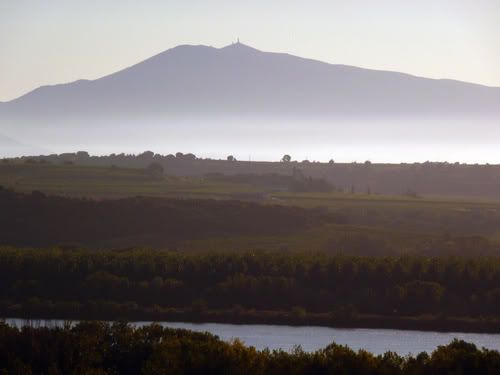Welcome to DU!
The truly grassroots left-of-center political community where regular people, not algorithms, drive the discussions and set the standards.
Join the community:
Create a free account
Support DU (and get rid of ads!):
Become a Star Member
Latest Breaking News
General Discussion
The DU Lounge
All Forums
Issue Forums
Culture Forums
Alliance Forums
Region Forums
Support Forums
Help & Search
World History
Related: About this forumFrancesco Petrarca: The Ascent of Mount Ventoux

Francesco Petrarch: "The Ascent of Mount Ventoux," The Renaissance Philosophy of Man, eds. E. Cassirer et al. (Chicago: University of Chicago Press, 1948), pp. 36-46.
To Dionigi da Borgo San Sepolcro, of the Order of Saint Augustine, Professor of Theology, about his own troubles.
Today I ascended the highest mountain in this region, which, not without cause, they call the Windy Peak. Nothing but the desire to see its conspicuous height was the reason for this undertaking. For many years I have been intending to make this expedition. You know that since my early childhood, as fate tossed around human affairs, I have been tossed around in these parts, and this mountain, visible far and wide from everywhere, is always in your view. So I was at last seized by the impulse to accomplish what I had always wanted to do. It happened while I was reading Roman history again in Livy that I hit upon the passage where Philip, the king of Macedon - the Philip who waged war against the Roman people - "ascends Mount Haemus in Thessaly, since he believed the rumor that you can see two seas from its top: the Adriatic and the Black Sea." Whether he was right or wrong I cannot make out because the mountain is far from our region, and the disagreement among authors renders the matter uncertain. I do not intend to consult all of them: the cosmographer Pomponius Mela does not hesitate to report the fact as true; Livy supposes the rumor to be false. I would not leave it long in doubt if that mountain were as easy to explore as the one here. At any rate, I had better let it go, in order to come back to the mountain I mentioned at first. It seemed to me that a young man who holds no public office might be excused for doing what an old king is not blamed for.
I now began to think over whom to choose as a companion. It will sound strange to you that hardly a single one of all my friends seemed to me suitable in every respect, so rare a thing is absolute congeniality in every attitude and habit even among dear friends. One was too sluggish, the other too vivacious; one too slow, the other too quick; this one too gloomy of temper, that one too gay. One was duller, the other brighter than I should have liked. This man's taciturnity, that man's flippancy; the heavy weight and obesity of the next, the thinness and weakness of still another were reasons to deter me. The cool lack of curiosity of one, like another's too eager interest, dissuaded me from choosing either. All such qualities, however difficult they are to bear, can be borne at home: loving friendship is able to endure everything; it refuses no burden. But on a journey they become intolerable. Thus my delicate mind, craving honest entertainment, looked about carefully, weighing every detail with no offense to friendship. Tacitly it rejected whatever it could foresee would become troublesome on the projected excursion. What do you think I did? At last I applied for help at home and revealed my plan to my only brother, who is younger than I and whom you know well enough. He could hear of nothing he would have liked better and was happy to fill the place of friend as well as brother.
We left home on the appointed day and arrived at Malaucène at night. This is a place at the northern foot of the mountain.
We spent a day there and began our ascent this morning, each of us accompanied by a single servant. From the start we encountered a good deal of trouble, for the mountain is a steep and almost inaccessible pile of rocky material. However, what the Poet says is appropriate: "Ruthless striving overcomes everything." [Vergil: Georgica i. 145-46; Macrobius, Saturnalia v. 6.]
http://www.idehist.uu.se/distans/ilmh/Ren/ren-pet-ventoux.htm
http://en.wikipedia.org/wiki/Ascent_of_Mont_Ventoux
http://en.wikipedia.org/wiki/Francesco_Petrarca
InfoView thread info, including edit history
TrashPut this thread in your Trash Can (My DU » Trash Can)
BookmarkAdd this thread to your Bookmarks (My DU » Bookmarks)
0 replies, 3284 views
ShareGet links to this post and/or share on social media
AlertAlert this post for a rule violation
PowersThere are no powers you can use on this post
EditCannot edit other people's posts
ReplyReply to this post
EditCannot edit other people's posts
Rec (0)
ReplyReply to this post